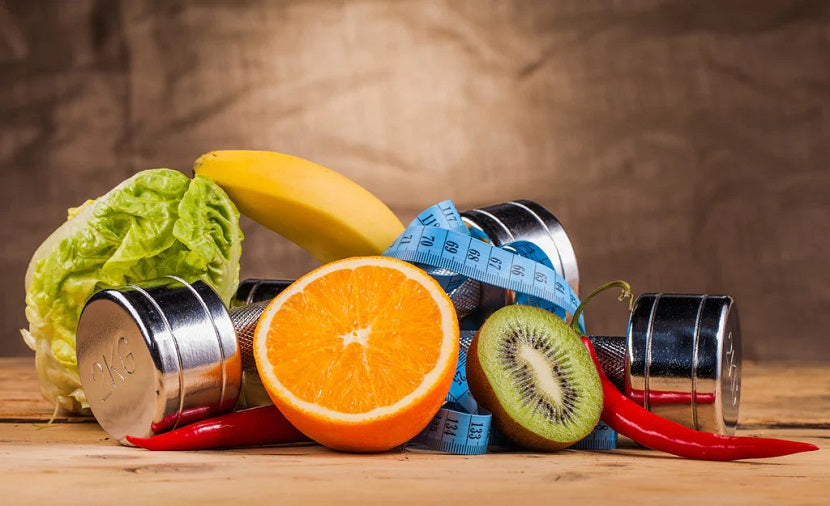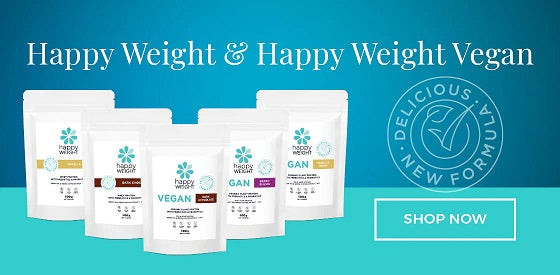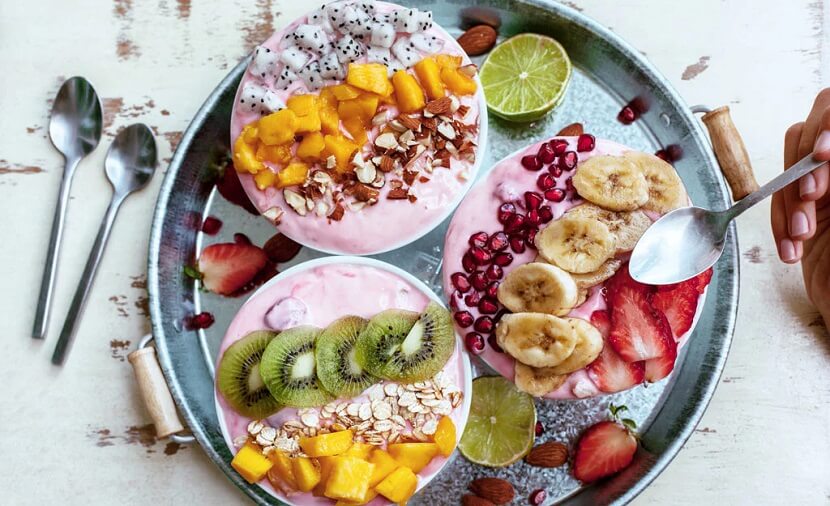Should you eat before exercising?
It's a common misconception that we must eat before exercise to ensure we have adequate energy. The truth is you’ll likely be fine training on an empty stomach if you're exercising for an hour or less. In fact, you'll more quickly dip into fat stores to fuel your workout if your goal is fat loss.
You might consider a green tea, matcha latte or an organic coffee prior to your training as caffeine has been shown to boost energy, performance, strength and stimulate fat burn!
Do note though that if you are someone who feels faint and weak exercising on an empty tummy, by all means, listen to your body and have food first.
What could I eat?
In this case, we can consider the fact that our muscles use the sugars (glucose) from carbohydrate to fuel short and high-intensity exercise, so you may like to include a carbohydrate-rich meal or snack prior.
Many studies have also documented the benefits of protein prior to a workout. It has been shown to improve performance and muscle growth, so you could try combining something rich in protein with a carbohydrate.
The perfection option could be Happy Weight powder blended with plant-based milk and some fruit.
What is best for a longer workout?
Because fat is the other source of fuel for your body when it comes to longer and moderate-to-low-intensity exercise if you intend on training session (+90 minutes) and/or focus on building strength and stamina, eating the combo of carbohydrates and high-quality fats beforehand will enable the slow release of energy to fuel these types of training.
Suggestions include:
- HW with a tbsp of peanut butter and a banana
- Pot-set coconut yoghurt with a handful of berries
- A banana with macadamia butter
- A piece of sourdough with avocado or an egg
- Brown rice with salmon
When should I eat?
If wanting to fuel your workout, I suggest keeping the meal quite moderate in size, simple and not too close to your workout time (around 2 hours before). The main reason for this is that you want your blood and energy focused on your muscles and heart where you need it most, rather than on digestion.
A note on hydration
Being hydrated has been shown to not only sustain but improve your performance in the gym. We know that being dehydrated leads to fatigue so it’s a good idea to bring a natural electrolyte drink with you to a workout. Try filtered water with a pinch of coloured salt and squeeze of lemon or coconut water.
What about post-workout food?
We’ve all heard that it’s important to eat within thirty minutes to an hour after a workout in order to prevent muscle breakdown. This makes sense as exercise puts us in a catabolic state and burns energy, therefore we should replenish.
However, please first consider these two points if you’re looking to burn fat:
-
Our glycogen stores are the sugars available in our muscles which, along with whatever sugar is in our bloodstream, fuel our workout.
When we train, we burn through this fairly quickly and then the body moves onto our fat stores to fuel us. This is where the fat burning magic happens. Why then would we immediately replenish with carbohydrates after a workout which can spike our insulin levels and negate the fat-burning state?
-
Our meals can take 24 hours or more to be processed by the body and for nutrients to reach their destination.
That means the meal you ate yesterday is actually partly refuelling your session rather than the meal you're racing home to consume.
This does not necessarily mean that you should skip post-training food. Rather, this is simply information to make you realise the importance of eating a complete and balanced diet ALL THE TIME because we want to make sure that the nutrients you need are always available to:
- fuel a workout
- repair muscle and promote growth
Additionally, the types of foods you choose matter greatly – not all carbohydrates are created the same and along with proteins, they affect your insulin levels in different ways. Our Happy Reset Program can help you learn more about quality food choices to combine with your exercise program for effective fat loss.
Our latest HAPPY HEALTHY YOU book also unveils the power of nutrient-dense foods in your quest for sustainable fat loss. It explains the transformative Happy Healthy You philosophy to help target your body's needs for healthy weight management and overall optimal health and well-being.
REFERENCES
Tipton KD, Elliott TA, Cree MG, Aarsland AA, Sanford AP, Wolfe RR. Stimulation of net muscle protein synthesis by whey protein ingestion before and after exercise. Am J Physiol Endocrinol Metab. 2007;292(1):E71-E76.
https://doi.org/10.1152/ajpendo.00166.2006
Maughan RJ. Investigating the associations between hydration and exercise performance: methodology and limitations. Nutr Rev. 2012;70 Suppl 2:S128-S131.
https://doi.org/10.1111/j.1753-4887.2012.00536.x
Lowery LM. Dietary fat and sports nutrition: a primer. J Sports Sci Med. 2004;3(3):106-117. Published 2004 Sep 1.
https://www.ncbi.nlm.nih.gov/pmc/articles/PMC3905293/
Kerksick CM, Arent S, Schoenfeld BJ, et al. International society of sports nutrition position stand: nutrient timing. J Int Soc Sports Nutr. 2017;14:33. Published 2017 Aug 29.
https://jissn.biomedcentral.com/articles/10.1186/s12970-017-0189-4
Gollnick PD, Matoba H. Role of carbohydrate in exercise. Clin Sports Med. 1984;3(3):583-593.
https://pubmed.ncbi.nlm.nih.gov/6571232/











Leave a comment
This site is protected by hCaptcha and the hCaptcha Privacy Policy and Terms of Service apply.